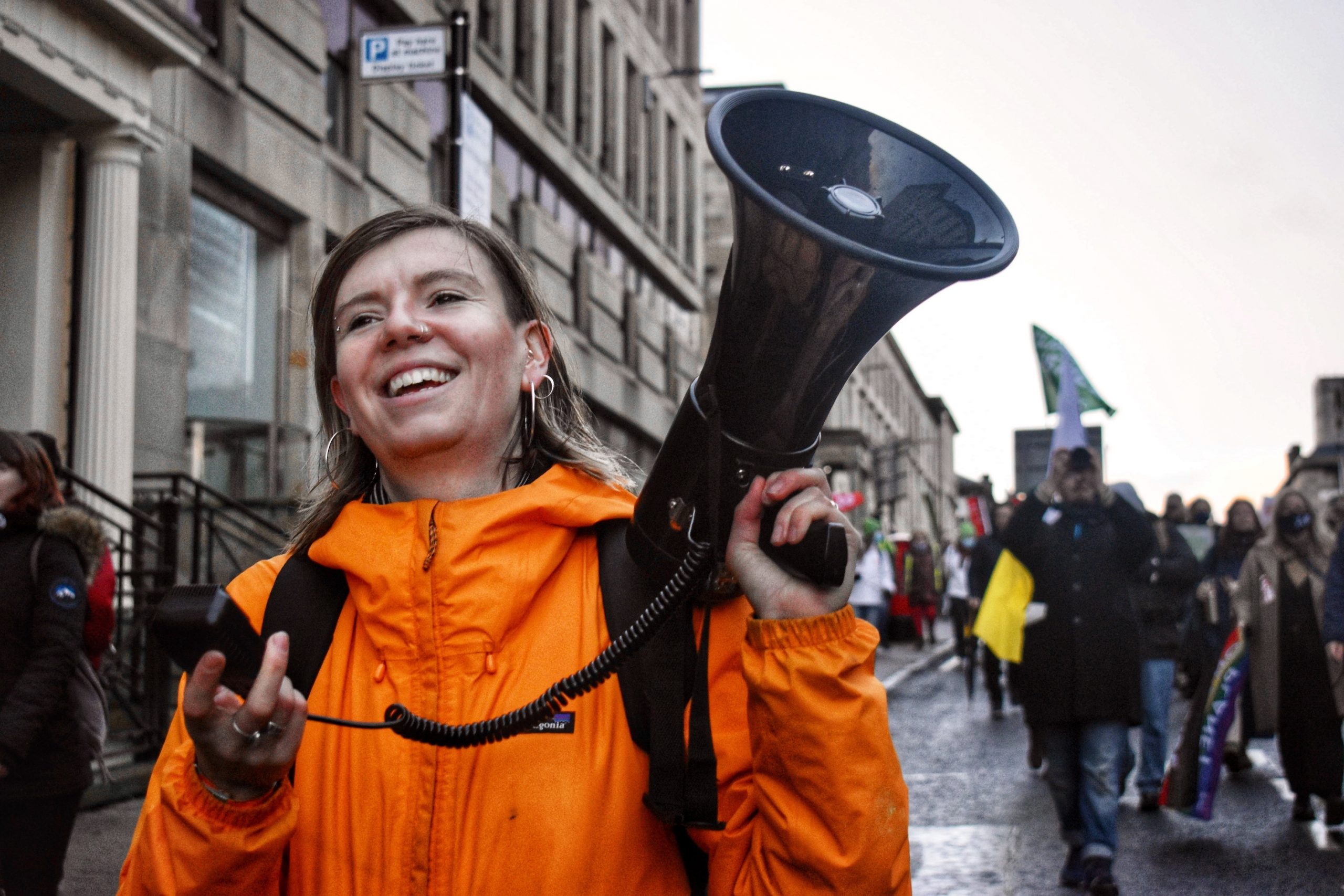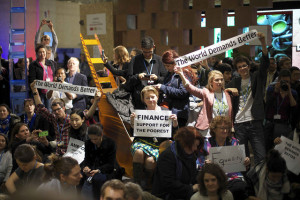
People Power at Paris Climate Summit
The French chair of the process at the climate conference is aiming to get a final agreement signed by 6pm tomorrow. Past experience suggests this is unlikely. I’ve already several times experienced that familiar feeling of turning up at the advertised time for a plenary meeting to find the desks set out for 196 negotiating parties empty apart from a few lost souls checking their emails. Revised times come and go, and in one case in Copenhagen in 2009 we hung on for four hours before the meeting actually started.
Part of the frustration of this is that the plenary meetings are almost the only place, for those of us observing the process, to find out what has been going on, because almost all other talks between country negotiators are behind closed doors.
Wednesday saw a new draft of the potential final agreement emerge, the result of last week’s discussions and small working group activity since Sunday. It was shorter but still full of brackets and the big unresolved issues were still largely, well, big and unresolved. The 6pm deadline tomorrow is looking pretty optimistic, despite the many hours that no doubt went into overnight talks.
Unlike those long waits in Copenhagen, however, few people think the deal done here is the world-saver we hoped for then. What’s agreed here is important. Who takes on what targets, how soon they are reviewed, what finance will be available, any rules on helping poorer countries cope with climate change, all key issues. But even if they agree the best bits on the table right now there will be almost no extra action to reduce emissions before 2020, and the inadequate promises for 2030 will deliver a world three degrees warmer than 150 years ago, when everyone is supposed to be committed to two degrees, and 1.5 degrees is really what we need to protect the most vulnerable.

(c) Luka Tomac
So campaigning groups and social movements have been talking for more than a year about Paris being an important part of the process, but far from the only hope. Knowing that global politics will fail to do enough, people have been taking up the fight against climate change themselves. And with some major successes.
President Obama’s decision to refuse the Keystone XL super-high-carbon pipeline and Shell giving up on Arctic oil drilling are two recent massive successes for campaigners. Last week Europe’s biggest lignite coal mine, near Berlin, was shut down by protesters for the second time this year. At home the Scottish Government’s moratoriums on fracking and underground coal gasification are clear signs that community and environment group campaigns on fossil fuels are making a difference.
People are also creating the alternatives, with community renewables a strong success in Scotland. We’ve already met the target for 2020 (so obviously we should set a higher one) and the Edinburgh Community Solar Cooperative has just raised £1.4 million from people in and around the Capital to create clean energy on school and community centre roofs.
People are also transforming energy investment. The divestment movement in the States has been very successful at getting universities and colleges to take their money out of fossil fuels and put them into something more socially useful instead. Glasgow and Edinburgh Universities have followed suit and there is a further £1.7bn sitting in Scottish public sector pension funds that could be doing good instead of bad.
During the conference, Paris has seen protests at bank headquarters, activists occupying the Louvre over oil-company sponsorship of the arts, and there was the eerie rally of pairs of shoes that took place in Place de la Rèpublique after big gatherings of people were banned. And the weekend saw alternative energy and transport solutions taking over a Parisian district.
Tonight 50 people will board a bus in Edinburgh to travel to Paris to be part of that growing people pressure on climate change (you’ll hear from one of them in Saturday’s column). They’ll be joining thousands of others in Paris for public demonstrations. They will show that while the politicians can’t sort it out, communities and campaigns are stepping up to take the action on the ground – against fossil fuels and for renewable energy – that is crucial to fighting the climate crisis.
The global climate movement has never been stronger. It has never been more needed.
Dr Richard Dixon is Director of Friends of the Earth Scotland and a Board Member of Stop Climate Chaos Scotland. Follow all the latest from Paris on Twitter: @Richard_Dixon @sccscot
